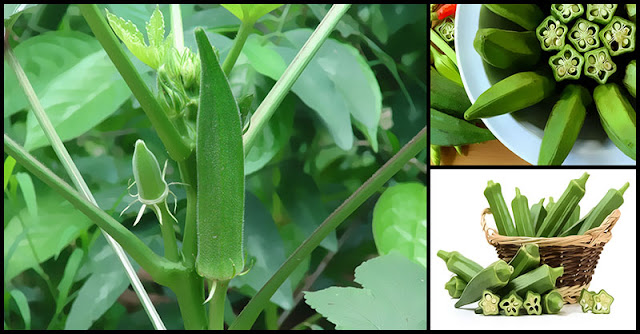Okra has been used to enrich the taste of Middle Eastern, Indian, and Southern U.S. cuisine. It has also been found that this vegetable could make those same meals healthier. In a study conducted by Chines researchers, results showed that eating okra can possibly improve the efficacy of the immune system, even the ones compromised by immunosuppression.
The immune system is the natural defense of the body against harmful pathogens. It is composed of cells, tissues, and organs that work together to maintain good health. Diseases will surely develop if one of these parts fails.
Immunosuppression is the partial or complete deactivation of the immune system wherein due to this, the body is unable to resist diseases. Pharmaceutical drugs are one of the primary cause of immunosuppression.
Immunomodulators are administered to people suffering from immunosuppression. This will increase immune function and restore the balance. The synthetic ones may only cause side effects, which would undermine any benefit they are supposed to bring.
Okra is highly-packed with nutrients that are needed by the body. It is considered to be a possible source of natural immunomodulators to strengthen the immune system.
The Potential Of Okra As An Immune Booster
In an experiment, okra pods were collected and used as raw materials. Water extraction and alcohol precipitation techniques were used to process the vegetables.
Three crude okra polysaccharides (RPS) were produced during the purification of the extract. The purified fractions were labeled RPS-1, RPS-2, and RPS-3.
These fractions, in turn, undergo diethylaminoethyl cellulose chromatography, a process that broke down the polysaccharides into their base components. Furthermore, they were also evaluated for their molecular weights, the type of monosaccharides that comprise them, and the infrared and nuclear magnetic resonance spectra that they gave off.
RAW264.7 cells were cultivated to create an in-vitro cell model. A treatment of either the extract or one of the crude okra polysaccharides were given to the mice-derived cells. The immunomodulatory activity for each treatment was measured.
The RPS-2 fraction was put through further in-vitro testing. It was administered to both normal mice and immunosuppressed animals that have been injected with cyclophosphamide. Sadly, the animals were sacrificed so that their spleen and blood could be analyzed for immunomodulating effect.
Monosaccharides In Okra Are Key To Its Immunomodulatory Activity
The three fractions of the crude okra polysaccharide were found to have different molecular weights. RPS-1 weighted 600 kilodaltons (kDa), RPS-2 was 990 kDa, and RPS-3 was the heaviest at a whopping 1,300 kDa.
The monosaccharides that made up RPS-1 and RPS-2 were rhamnose, glucuronic, galactose, and galacturonic acid. Additionally, RPS-3 also contained glucose.
Based on the infrared and nuclear magnetic resonance imaging, all three RPS follow the rhamnogalacturonan I model. This is a fairly low-abundant polysaccharide with a strange structure that gives it great versatility.
The okra polysaccharide extract and its purified fractions were found to increase the growth of RAW264.7 cells. Production of nitric oxide was raised and this is attributed to the way they improved the expression of inducible nitric oxide synthase.
Moreover, the extracts and fractions also increased the amount of tumor necrosis factor-alpha, interferon-gamma, and interleukin-10, which are all cytokines associated with immune response.
Treatment with purified RPS-2 was able to raise the spleen index of both healthy and immunosuppressed mice. The number of splenocyte white blood cells in the spleen and splenic tissue was increased. Lastly, it encouraged the secretion of cytokines that fight infection.
These findings only show that the polysaccharides in okra should be investigated for future use as natural immunomodulators.









